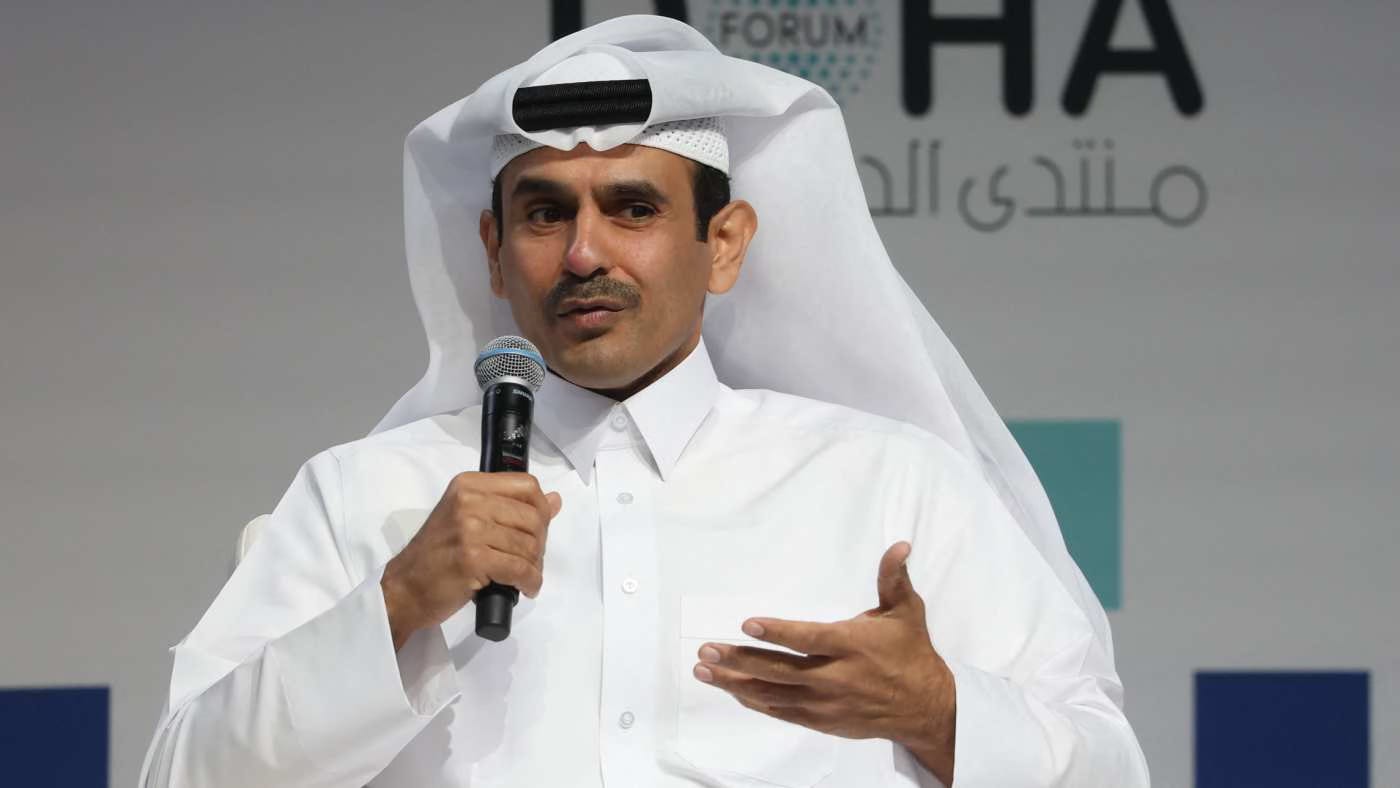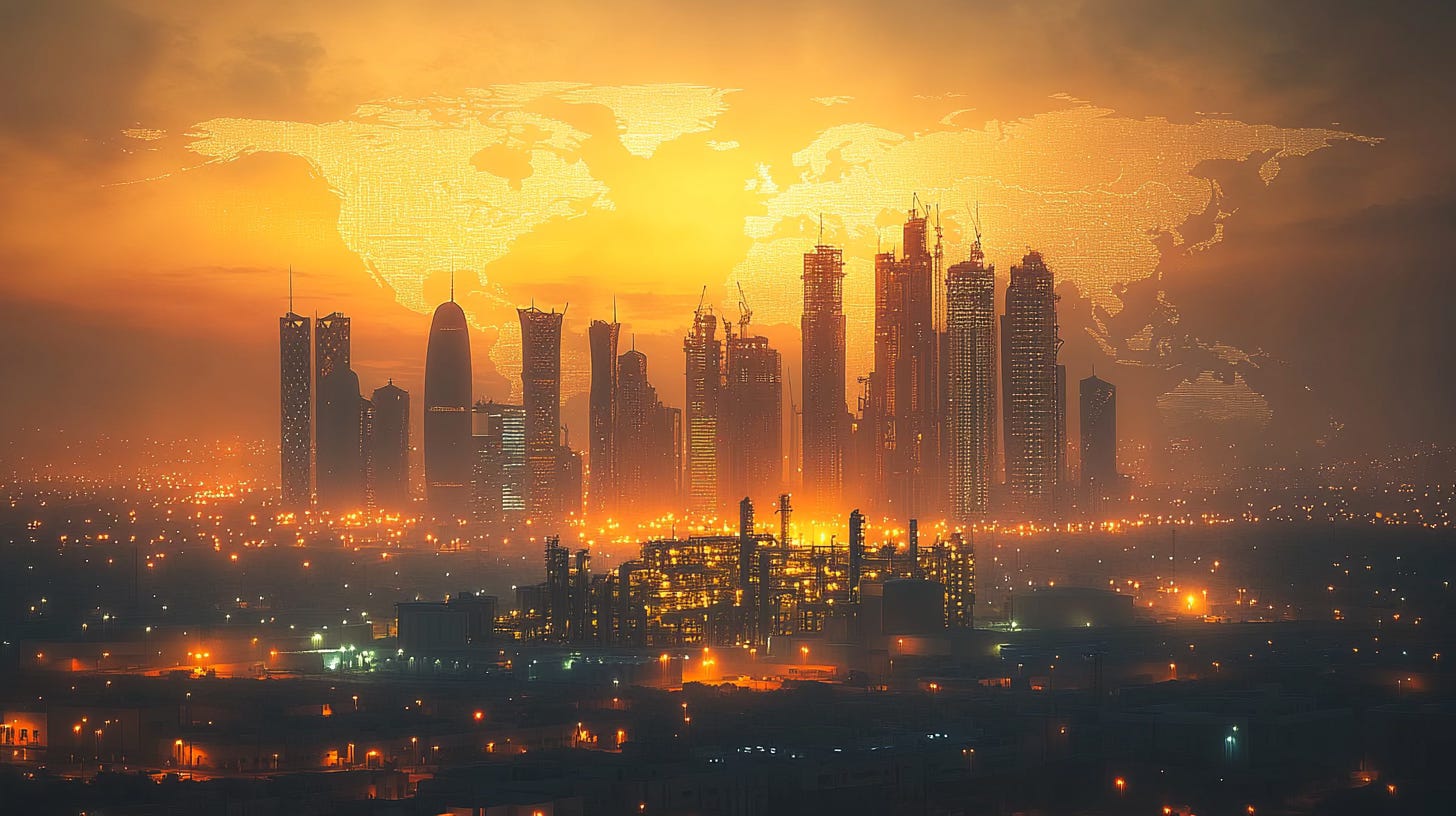Qatar’s Decisive Rejection of Europe’s Overreach
As the global order shifts, Qatar and its Gulf allies assert their influence, challenging Europe’s waning dominance with unyielding resolve.
In a world no longer shackled by the old European paradigm of dictating terms to the rest of the globe, Qatar’s Energy Minister, Saad Sherida al-Kaabi, has delivered a message both clear and unapologetic: the era of one-sided dictates is over. Speaking to the Financial Times, Al-Kaabi’s declaration that Qatar would halt gas exports to Europe if penalized under the EU’s Corporate Sustainability Due Diligence Directive signals more than a simple policy disagreement. It is a manifesto of sovereignty, a bold assertion of national interest, and a reflection of the Gulf Cooperation Council’s (GCC) newfound confidence on the global stage.
Al-Kaabi’s words are not just the musings of an energy executive; they are the calibrated voice of a nation—and a region—that has outgrown the colonial hangover of Western economic dominance. Qatar, alongside its GCC peers, has evolved into a critical player in the global energy market, wielding the kind of leverage once reserved for the West. This leverage is not accidental. It is the result of decades of strategic planning, resource management, and a recognition that energy is not just a commodity—it is power.
Let us dispense with the sanctimonious posturing of the European Union for a moment. The Corporate Sustainability Due Diligence Directive, while wrapped in the noble language of human rights and environmental stewardship, is, in reality, an instrument of economic coercion. It imposes penalties of up to 5% of a company’s annual global revenue for failing to comply with vaguely defined criteria. For a global energy titan like QatarEnergy, such penalties amount to punitive overreach. If Europe is so keen on policing the world’s corporations, it might start by examining its own extractive industries, whose practices in the developing world often leave environmental and human rights disasters in their wake.
Minister Al-Kaabi’s stance is neither reckless nor vindictive—it is pragmatic. “If I lose 5 percent of my revenue by supplying Europe, I won’t supply Europe,” he declared. This is not a bluff, as he rightly emphasized; it is economic realism. Europe, desperate to replace Russian energy following the Ukraine crisis, has relied heavily on Qatar’s liquefied natural gas (LNG). Yet, in a breathtaking display of ingratitude, it now seeks to impose financial penalties on the very partner that has helped keep its lights on and its homes warm. The hypocrisy is staggering.

But more than hypocrisy, what we are witnessing is the unraveling of an old order. For centuries, Europe dictated terms, whether through colonial conquest, economic hegemony, or geopolitical machinations. That era is now definitively behind us. The GCC states, led by nations like Qatar, Saudi Arabia, and the UAE, have emerged as confident, independent actors, unafraid to assert their interests and challenge the inequities of the global system.
The GCC’s rise is not a fluke. It is built on the foundation of resource wealth, yes, but also on vision, innovation, and adaptability. Qatar’s investment in LNG infrastructure, its diversification of markets, and its establishment of long-term agreements with global partners demonstrate a sophistication that rivals—and often surpasses—that of its European counterparts. Meanwhile, Europe, mired in bureaucratic inertia and self-inflicted energy crises, finds itself increasingly dependent on the very nations it once sought to dominate.
Minister Al-Kaabi’s position, therefore, is not just about LNG or one directive; it is about the broader dynamics of a changing world. It is about the GCC’s refusal to accept a world where rules are written in Brussels and Washington and imposed on the rest. It is about demanding mutual respect and genuine partnership, not condescension masquerading as diplomacy.
To those in Europe who may find this stance uncomfortable: the discomfort is well-earned. The reality of today’s world is that power is no longer concentrated in the West. It is multipolar, dynamic, and shifting—and the GCC is a critical node in this new global order. If Europe wishes to remain relevant, it must learn to engage with nations like Qatar on equal footing, not as supplicants to an outdated hierarchy.
In the words of Justice Antonin Scalia, “The Constitution is not a living document. It’s dead, dead, dead.” And so too is the old system of Western domination. The world has moved on. Qatar, and the GCC at large, are not just participants in this new era; they are architects of it. Europe would do well to recognize this reality before it finds itself on the wrong side of history—and the wrong side of the gas pipeline.






